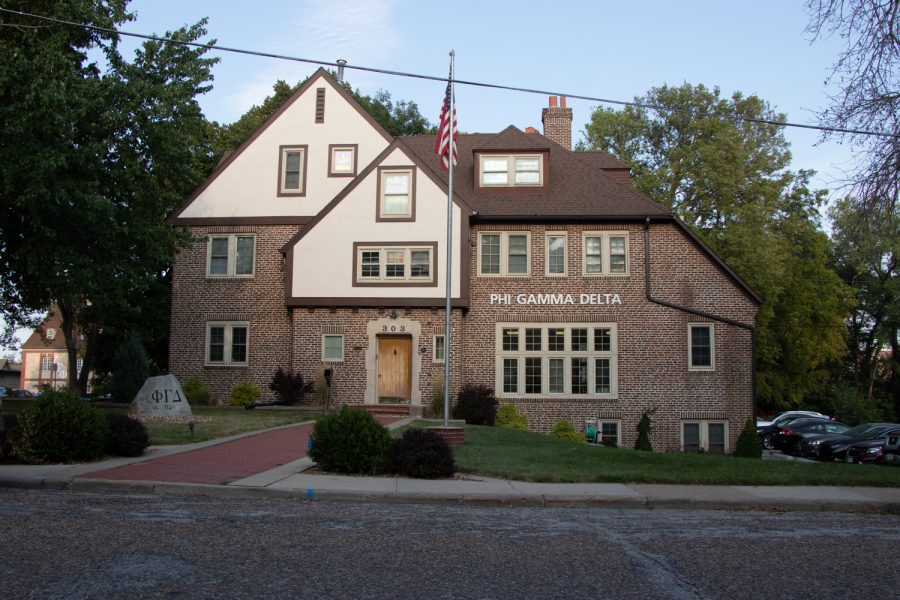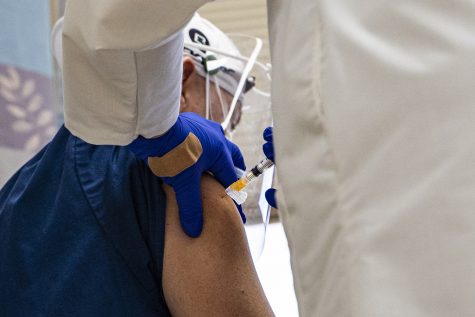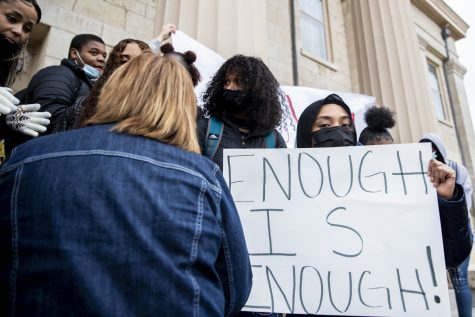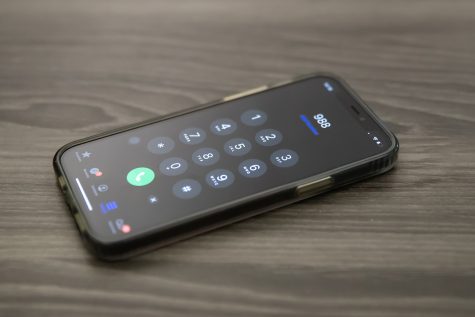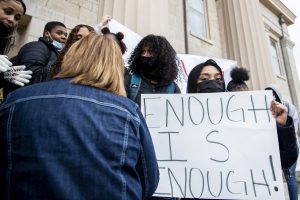Iowa FIJI chapter denies wrongdoing in lawsuit over alleged sexual assault
The chapter denied it had any responsibility to protect a woman accusing two former FIJI members of sexual assault and claimed she was responsible for any injuries caused.
The Phi Gamma Delta house is seen on Monday, Aug. 30, 2021.
December 13, 2021
The University of Iowa chapter of the Phi Gamma Delta fraternity, commonly known as FIJI, rebuffed accusations that it aided and abetted a sexual assault, as the chapter and two former members face a lawsuit over allegations that the former members sexually assaulted a UI student at a party last year.
In a court filing on Friday, the Mu Deuteron chapter of Phi Gamma Delta, the formal name for the UI’s chapter, denied any wrongdoing in the alleged incident.
The chapter denied any injury was sustained by UI student Makéna Solberg, who filed the lawsuit. But in its filing, it said she was responsible for any damages caused. Her claims for damages are barred, the chapter said, “by her consent, contributory negligence and/or willful misconduct.”
“The sole proximate cause of any injury Plaintiff may have experienced is due to her own conduct,” the chapter said in the document.
The chapter was named as a defendant in the lawsuit from Solberg, alleging that two former members of the fraternity sexually assaulted her at a party on Sept. 5, 2020 and shared photos and videos of the incident. The two men, Carson Steffen and Jacob Meloan, as well as Phi Gamma Delta Educational Association, Inc., an arm of the national fraternity, were also named as defendants in the lawsuit.
The UI FIJI chapter and Phi Gamma Delta Educational Association, Inc. were accused of failing to protect guests at a fraternity event and delaying investigations into the alleged assault by directing members to delete photos.
The chapter denied that it ever failed to protect guests or police its members, saying the chapter’s code of conduct, rules, and policies do not create a standard of care.
“Defendant owed no duty to protect Plaintiff from negligent, intentional, or criminal actions of third parties or any other duty of care,” the chapter’s filing says.
In the filing on Friday, the chapter said that “digital images may have been shared in a social media group.”
But the chapter denied allegations that the images were portraying a sexual assault, or that the group chat had been established for “official Iowa FIJI communications,” as the initial lawsuit said.
In a separate filing last week, Steffen didn’t deny having sex with Solberg, but he said it was consensual. Steffen is seeking reparations for damages to his reputation and future earning potential.
Steffen was arrested last week on a harassment charge, and he’s accused of sharing a sexual photo of a victim without their consent on Sept. 5, 2020, the same day Solberg says he and Meloan sexually assaulted her.
Iowa City Public Information Officer Lee Hermiston wrote in a Dec. 8 email to The Daily Iowan that the arrest was a result of an investigation into allegations at 303 Ellis Ave., the FIJI house, but he said the arrest was not a result of public pressure on the case.
Solberg initially made a report to the police in September 2020, six days after the alleged assault. In a September search warrant for surveillance video from the Iowa FIJI house, police said they interviewed several people who said they had received images of Steffen and Meloan having sex with a woman.
One FIJI member police spoke to had a GroupMe message “from possibly the fraternity President” advising members to delete the images going around, police said.
Police searched Steffen’s and Meloan’s phones in the initial investigation and found a photo on Steffen’s phone that corroborated a photo described by one of the witnesses, the warrant application said.
Police did not make any arrests in the investigation until Steffen was arrested on Dec. 8 of this year, and a criminal complaint did not say whether the photo he shared was the same one mentioned in the search warrant.



